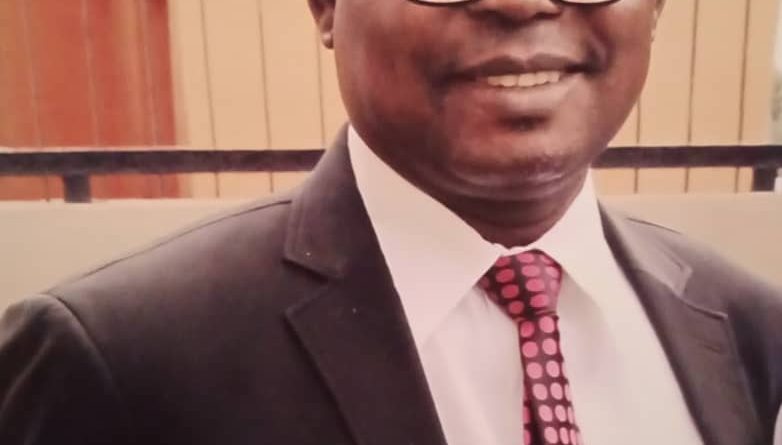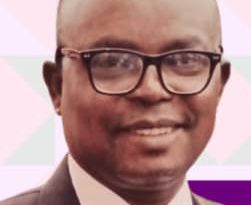Why Is The North Always Coming In Late?
By Bolanle Bolawole
turnpot@gmail.com 0705 263 1058
The news media were awash last week that the North’s governors and traditional rulers have come around to support state police after a meeting they held in Abuja; the reason for their about turn was given as the worsening security situation in the North.
These are the same leaders that have often risen in stout defence of the administration of Muhammadu Buhari, threatening critics with mayhem and insisting, against the grains of evidence and acting like the ostrich, that the North is more secured under their own son, Buhari, than it was under his predecessor, the Ijaw man Goodluck Ebele Jonathan.
The same North that has stood ramrod against calls for state police, labelling its advocates as enemies of Nigeria’s unity and oneness and threatening them with charges of treason, now wants state police to curb rampant insecurity, which they had hitherto denied was obliterating any semblance of governance in their own part of the country! If we may ask the North, na today day break, as they say? Why is the North always a late-comer to all things good in Nigeria? Is this hyperbolic or exxagerated?
A news medium reported the outcome of the Northern leaders meeting thus: “As Nigeria’s security challenge continues to degenerate, the Northern state governors and the traditional rulers councils have called for the establishment of state police as the solution to the problem… They made the call after reviewing the security situation in the North during their meeting which was held in Abuja.
A statement issued in Jos on Tuesday after the meeting by the Director of Press and Public Affairs to the Governor of Plateau State and Chairman, Northern Governors Forum, read in part, ‘The Northern Governors Forum on Monday, September 12, 2022, met with the Northern Traditional Rulers Council in Abuja and came out with a resolution calling for the establishment of state police to tackle security challenges in the region and the nation at large’.
Reading the communique after the meeting at the Transcorp Hilton Abuja, the Chairman of the Forum and Governor of Plateau State, Simon Lalong, said the meeting reviewed the security situation in the North and other matters relating to its development and resolved to support the amendment of the 1999 Constitution to accommodate the establishment of state police. According to him, this will effectively and efficiently address the security challenges of the region…”So they are just waking up to the reality of the parlous security situation confronting the North and its people! So they are now tired of acting like the ostrich? So they no longer see everything from the prism of “us” and “they” and the “North” versus the “South”? Are they now tired of playing politics with all issues, including those of security and development? My people have a saying: If you admonish the scantily-dressed to kit up and he/she snubs you, you don’t worry; the harmattan or General Winter will soon arrive to teach him or her object lessons! The harmattan or General Winter of insecurity is teaching leaders of the North the lessons they have ignored to take to heart these past years! But only after they have dragged the entire country down with them – with everyone having suffered huge human, financial, and material losses!Why is the North always arresting the development of the entire country? Why are they always acting as a drag on other Nigerians eager to march forward? Again, is this hyperbolic or exxagerated?
When, in 1953, Anthony Enahoro moved his famous “self-rule” or “Independence Now” motion that Nigeria should gain independence in 1956, it was the North that withstood him, the motion and other Nigerian nationalities in support of the motion. Nigeria, the self-acclaimed giant of Africa, would have gained its independence before our smaller neighbour, Ghana, which became independent on March 6, 1957.
What made the difference between Ghana and Nigeria was leadership. Nigeria’s nearest, even superior material to Ghana’s Osagyefo Kwame Nkrumah, was Obafemi Awolowo – but he was not allowed to rule: Awo was “The best president Nigeria never had”, to quote Ojukwu. Needless to say that Awo’s list of achievements: “first-this” and “first-that” in Africa within the period he was the premier of the Western Region (1954 to 1959), testifies to this. Why is the North always a late-comer? When, in 1963, Nigeria was to become a Republic and the agitation was for more regions to be created out of the three regions of North, East and West, only the Midwest was created out of the West. The North withstood the demands of the Middle Belt people for their own region simply because they wanted to maintain the electoral and other advantages of a monolithic North.
The East’s Nnamdi Azikiwe, as a result of his Awo-phobia and the ever-present desire of the East to appropriate the West, supported the North to carve out the Midwest from the West while leaving both the Northern and Eastern regions untouched. The East has historically and politically never been friends with the West – whether then or now!
Some reports have it that one of the greatest Igbo leaders, Michael Okpara, before his death on 17 December, 1984, regretted his own role in Zik’s politics of Awo-phobia, which has polluted East-West relations to this day. The North and the East acting together stifled the struggle of the Middle Belt for their own liberation from the stranglehold of the conservative and feudalistic North.
They also frustrated the struggle of the minorities of the East, eventually triggering the 12-day revolution of Isaac Jasper Adaka Boro to forcibly create an independent region for his ethnic Ijaw people.Boro (10 September, 1938 – 9 May, 1968), was born at Oloibiri, where crude oil was first found in commercial quantity in Nigeria on Sunday, 15 January, 1956 by Shell Darcy. A teacher, policeman, Nigerian army officer, undergraduate of Chemistry and students union president at the University of Nigeria, Nsukka, Boro left school to lead a protest against the mindless exploitation of the oil and gas resources in his native Niger Delta and the marginalization of his Ijaw people.
He formed the Niger Delta Volunteer Force and declared the Niger Delta Republic on 23 February, 1966. Had the North and East allowed for the creation of the Middle Belt region in the North and the Niger Delta region for the minorities in the East, the agitations that cost many lives in the Middle Belt (e.g. the Tiv Revolts of 1960, 1964) and the Adaka Boro revolution would have been avoided! One author said “Many people were killed during the (Tiv) uprisings in 1960 and 1964. The Tiv attempt to create a separate region was blocked by northern Muslim-based political parties”. Eastern-based political parties were also complicit in that and it was not until 5 May, 1967 that the then military Head of State, Gen. Yakubu Gowon, ameliorated the situation with the creation of 12 states as a result of the exigencies of the moment and not necessarily out of any sense of equity, fair play and justice.
A writer said it was in a move to check the influence of secessionist Odumegwu Ojukwu in the East. The Nigerian civil war eventually broke out on 6 July, 1967 and ended on 15 January, 1970 with the Biafran surrender.
Aside from the brief periods of 15 January – 29 July 1966 that Gen. JTU Aguiyi-Ironsi ruled the country and Gen. Olusegun Obasanjo’s similar inter-regnum (February 13, 1976 – October 1, 1979), Northern generals ruled the country for decades and stifled democracy. When the pressure to rid the country of military dictatorship took hold all over the country, the North and its elites were the last to catch the bug.
The June 12, 1993 presidential election won by MKO Abiola, adjudged the freest and fairest in the annals of the country, was annulled by a Northern general, Ibrahim Babangida.
Another Northern general, Sani Abacha, brushed aside Ernest Shonekan’s Interim National Government (27 August, 1993 – 17 November, 1993), seized power and hauled Abiola into detention, where he eventually died under the watch of another Northern general, Abdulsalami Abubakar.
It was not until 25 years after (12 June, 2018) that Buhari, another Northern general, saw the need to recognize and declare June 12 as Democracy Day, a clamour that had, for decades, ruled the South in general and Southwest in particular.
When Nigerian youth staged #ENDSARS in October 2020 in the South, the North mobilized to break it, saying it was targeted against their beloved Buhari, whose reign and “achievements” they swore suited them fine!
The same North, however, turned round soon afterward to lambast and lampoon the same Buhari and his government! If you want the North to jump at anything, get the South to reject it! In like manner, if you want the North to reject anything, even if it is in their best interest, get the South to embrace it! Why is the North always like this?
Now that they have belatedly come around to accepting that this country needs state police, how long will it take them to realise that the battle cry now is not just for the tokenism of state police but for full-blown restructuring if, per chance, we are to stave off the country’s eventual disintegration?
If history is anything to go by, the North will again arrive at that bus stop very late! It will only attempt to shut the stable door after the horse must have bolted! Tell me if you know it: Why, why is the North always coming in late?




